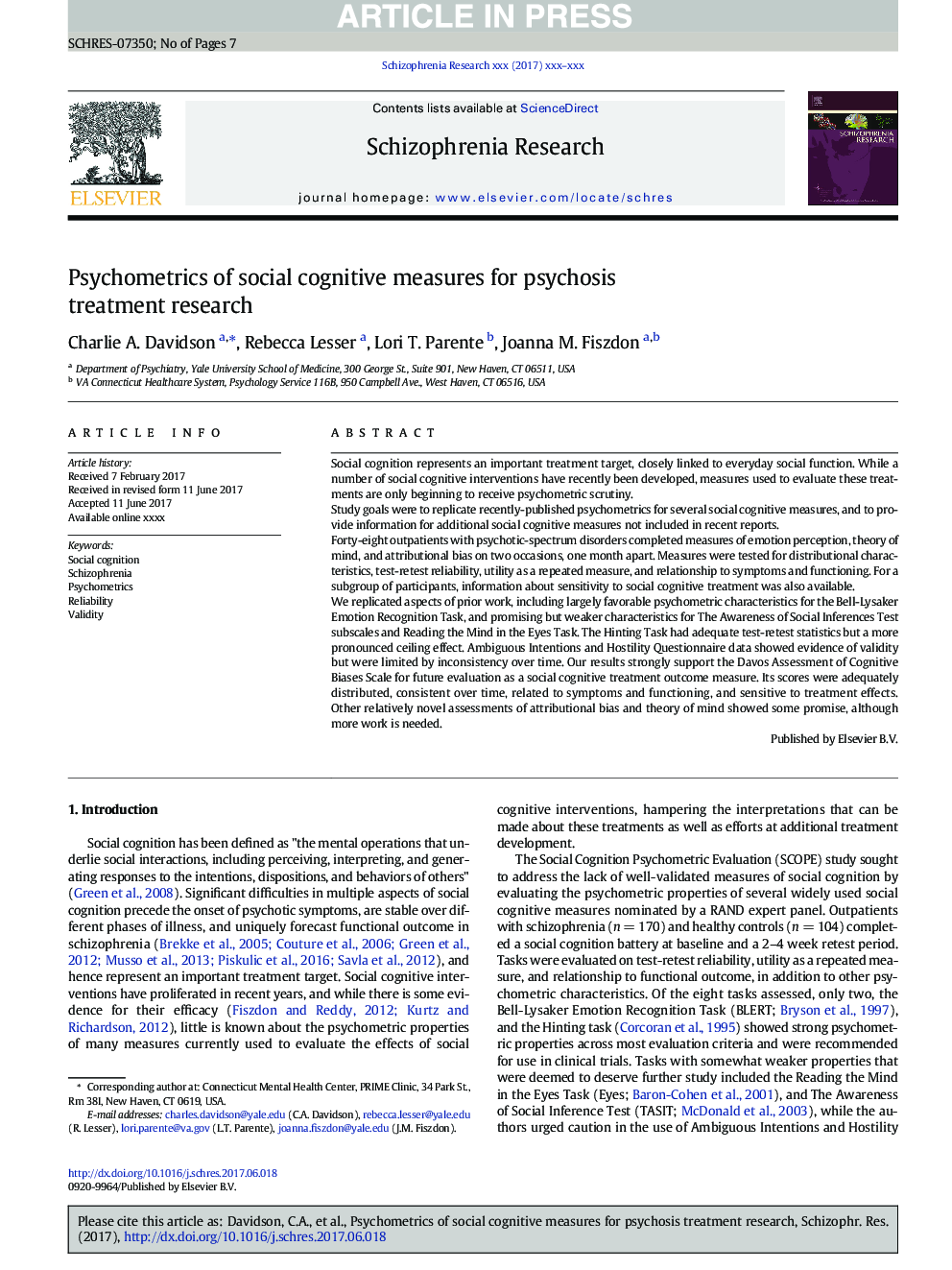| Article ID | Journal | Published Year | Pages | File Type |
|---|---|---|---|---|
| 6821751 | Schizophrenia Research | 2018 | 7 Pages |
Abstract
We replicated aspects of prior work, including largely favorable psychometric characteristics for the Bell-Lysaker Emotion Recognition Task, and promising but weaker characteristics for The Awareness of Social Inferences Test subscales and Reading the Mind in the Eyes Task. The Hinting Task had adequate test-retest statistics but a more pronounced ceiling effect. Ambiguous Intentions and Hostility Questionnaire data showed evidence of validity but were limited by inconsistency over time. Our results strongly support the Davos Assessment of Cognitive Biases Scale for future evaluation as a social cognitive treatment outcome measure. Its scores were adequately distributed, consistent over time, related to symptoms and functioning, and sensitive to treatment effects. Other relatively novel assessments of attributional bias and theory of mind showed some promise, although more work is needed.
Related Topics
Life Sciences
Neuroscience
Behavioral Neuroscience
Authors
Charlie A. Davidson, Rebecca Lesser, Lori T. Parente, Joanna M. Fiszdon,
